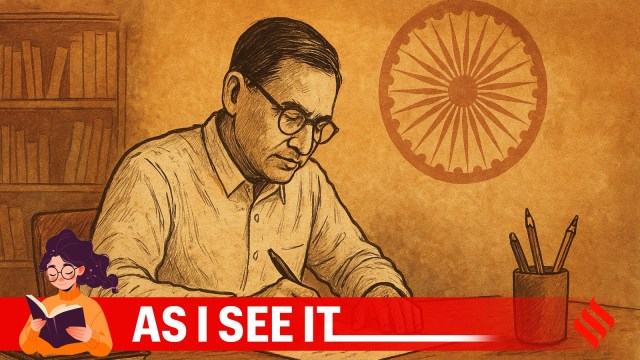More than babus: How Indian administrators shape thought through literature
For the steel frame to stay relevant beyond retirement, its writings must challenge, reform, and inspire public discourse.
 Civil servants have long shaped not just governance, but public thought through their writing. (Generated using AI)
Civil servants have long shaped not just governance, but public thought through their writing. (Generated using AI) Power fades, postings end, but sentences endure. Across generations, India’s administrators have reached for the pen to leave behind more than minutes of meetings. They have written themselves into the nation’s story, sometimes as loyal recorders, sometimes as restless critics.
The Gandhi Smriti Library at the Lal Bahadur Shastri National Academy of Administration has a section called “The Making of a Nation” — a fitting name, but also a reminder that civil servants have long shaped not just governance, but public thought through their writing. The steel frame of India, as Sardar Patel called it, has often found expression beyond files and offices, producing a literary corpus that deserves closer scrutiny. The question is whether these writings merely record personal journeys or whether they meaningfully influence how we see our nation.
 RC Dutt’s Economic History of India and Sir George Grierson’s Linguistic Survey of India. (Source: amazon.in)
RC Dutt’s Economic History of India and Sir George Grierson’s Linguistic Survey of India. (Source: amazon.in)
Even at the turn of the twentieth century, figures such as RC Dutt were producing the Economic History of India, books that still echo in today’s debates on colonial exploitation. Sir George Grierson’s Linguistic Survey of India was as much a scholarly exercise as it was administrative. Yet, while these works highlight the intellectual depth civil servants could bring, they also show a tendency towards chronicling rather than critiquing the system they served.
Post-independence
Post-Independence, the tradition carried forward. BD Pande’s In the Service of Free India and LP Singh’s Portrait of Lal Bahadur Shastri reflect loyalty to both duty and memory. But if Pande was careful, TSR Subramanian’s Journeys through Netaland and Babudom offered biting candour, lamenting how bureaucracy fell short of Patel’s vision. This contrast is telling: one strand of writing seeks to preserve the dignity of the service, the other dares to admit its failures. It is in this space between reverence and irreverence that the real value of bureaucratic writing lies.
 BD Pande’s In the Service of Free India and TN Sheshan A Heart Full of Burden and Through the Broken Glass. (Source: amazon.in)
BD Pande’s In the Service of Free India and TN Sheshan A Heart Full of Burden and Through the Broken Glass. (Source: amazon.in)
Among the most recognisable names is TN Sheshan, whose A Heart Full of Burden and Through the Broken Glass revealed a self-righteous streak that mirrored his public persona. They inspired admiration, but also raised the question: should governance be driven by personality and moral outrage, or by institutional continuity? By contrast, SY Quraishi’s An Undocumented Wonder has become the benchmark because it blends insider experience with analytical rigour — proving that civil servant memoirs can transcend anecdote and become works of public scholarship.
The post-Covid wave
The post-Covid wave of officer-authored books further complicates the picture. Titles by D Subbarao, Subhash Chandra Garg, and Anil Swarup show two divergent impulses: some question the system’s capacity to deliver, others reinforce the idea that committed individuals can still make a difference. But the very surge of such publications also signals something else — an era where civil servants are increasingly conscious of their legacy, sometimes even their brand. One has to ask: are these writings meant to hold the mirror to governance, or to polish the image of the officer?
Of course, there are creative and cultural contributions too. Upamanyu Chatterjee’s English, August and Anita Agnihotri’s novels remind us that the steel frame can also bend into art. Yet even here, the underlying truth remains: these works are received less as literature in its own right, and more as curiosities from those who once “ran the system.”
This is why the literary legacy of India’s bureaucracy needs to be seen with a sharper lens. It is admirable that officers have continued to write, translate, and reflect, but their writings must not remain mere extensions of service diaries. If they are to matter to future generations, they must confront uncomfortable truths, offer frameworks for reform, and spark debate rather than self-congratulation.
In the end, the pen may outlast the posting, but endurance alone is not enough. For the steel frame to stay relevant beyond retirement, its writings must challenge, reform, and inspire public discourse — otherwise they risk being remembered only as polished memoirs stacked neatly in a library.
(The author is a governance Scholar, historian, and former civil servant; currently serving as festival director of the Valley of Words)



- 01
- 02
- 03
- 04
- 05




























